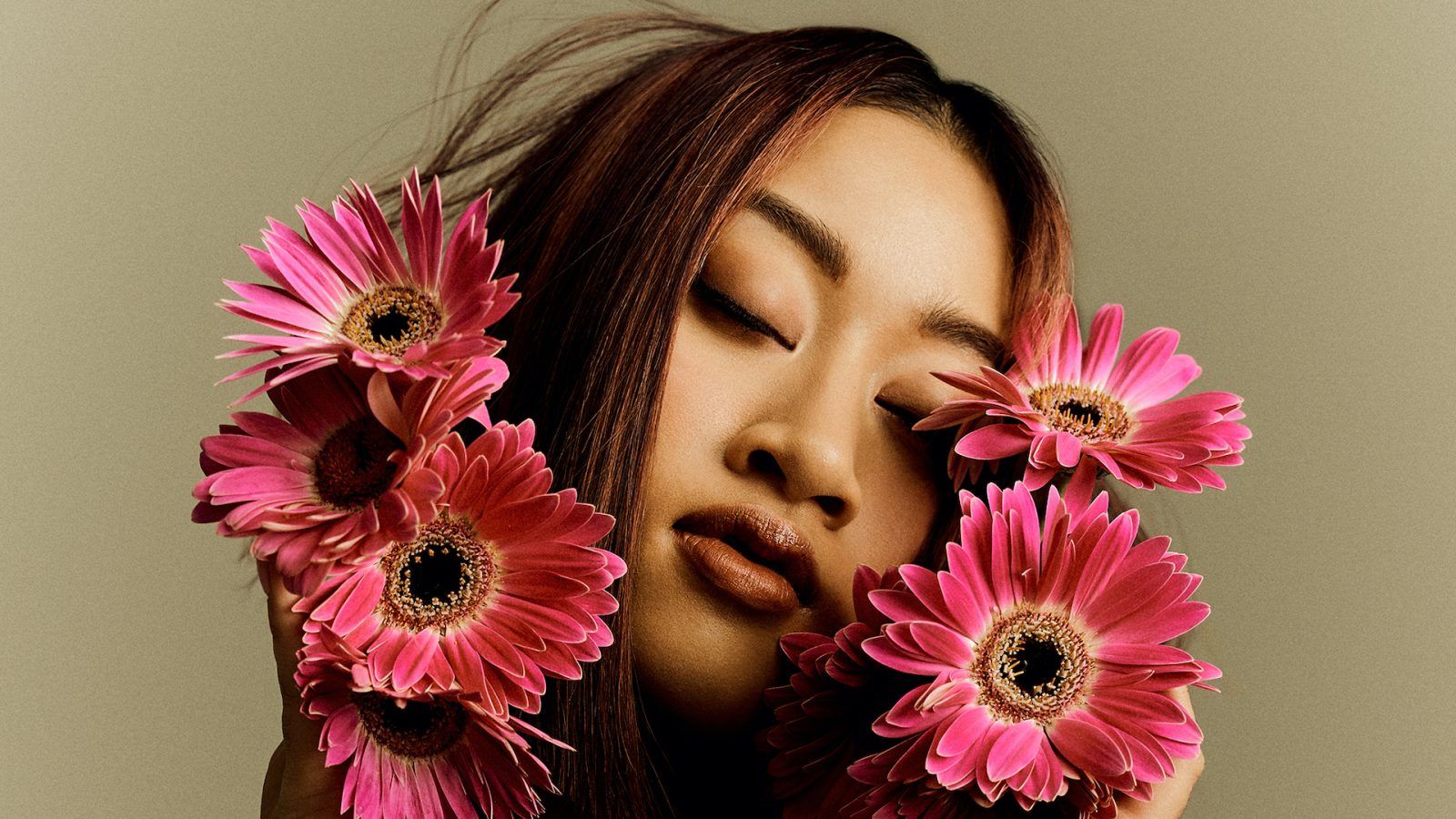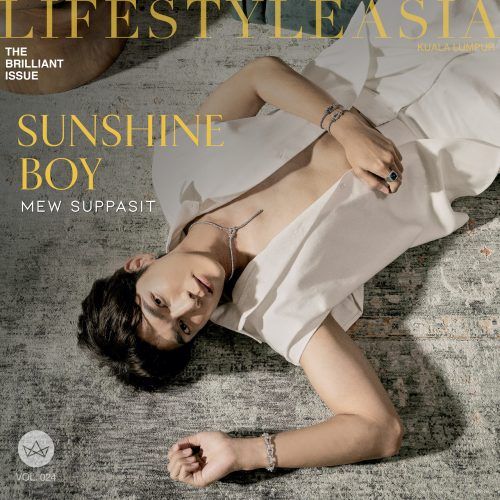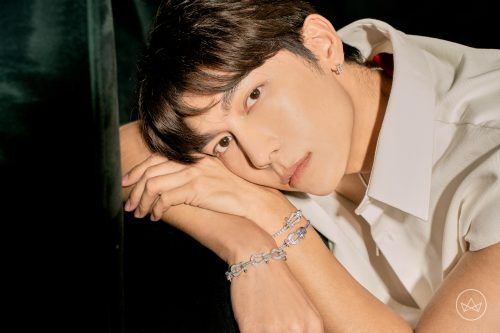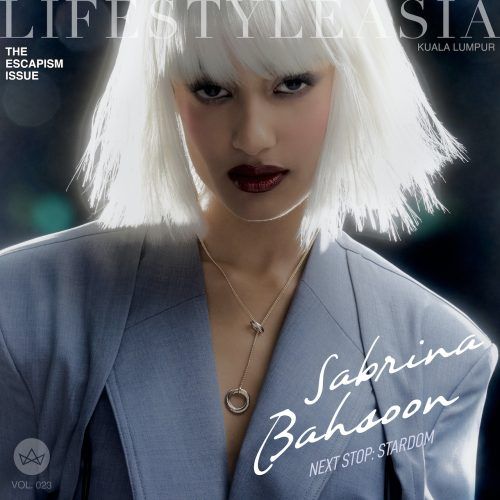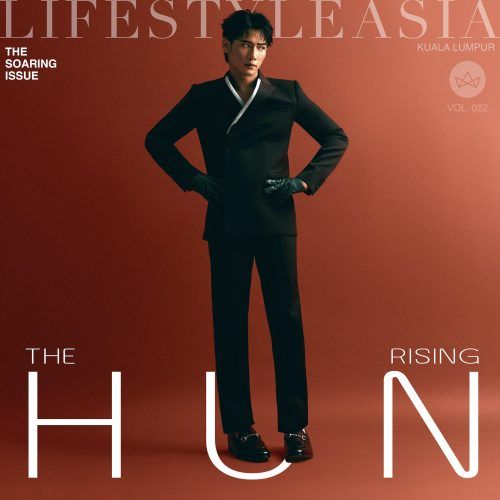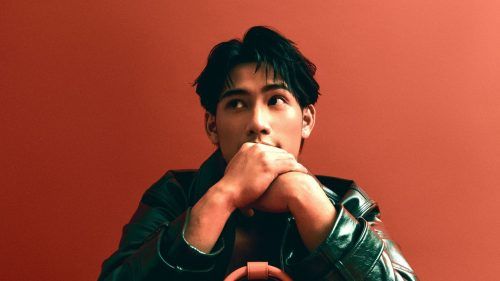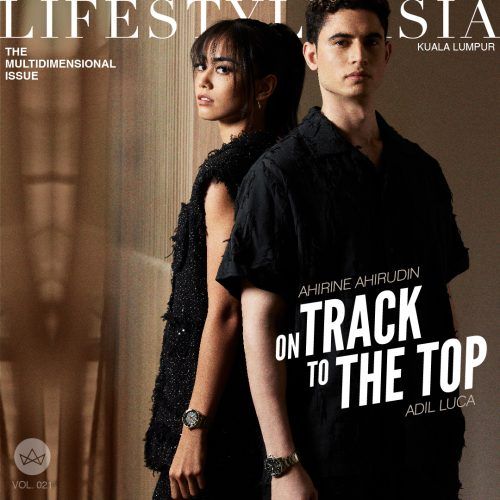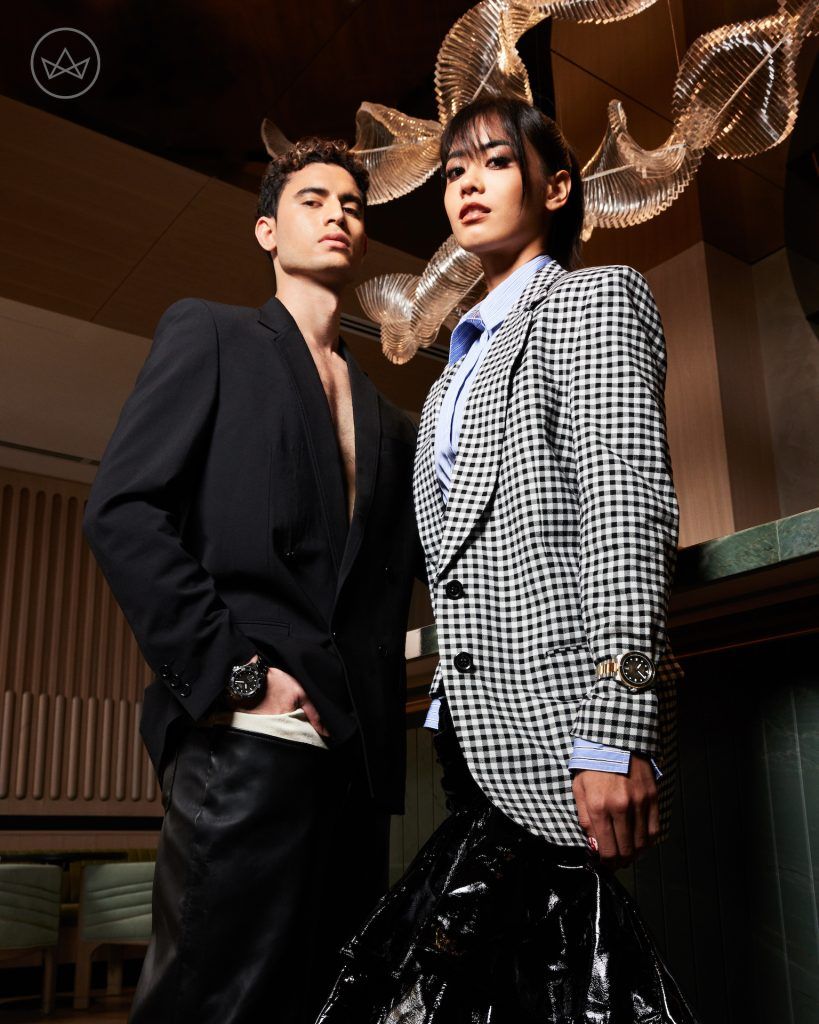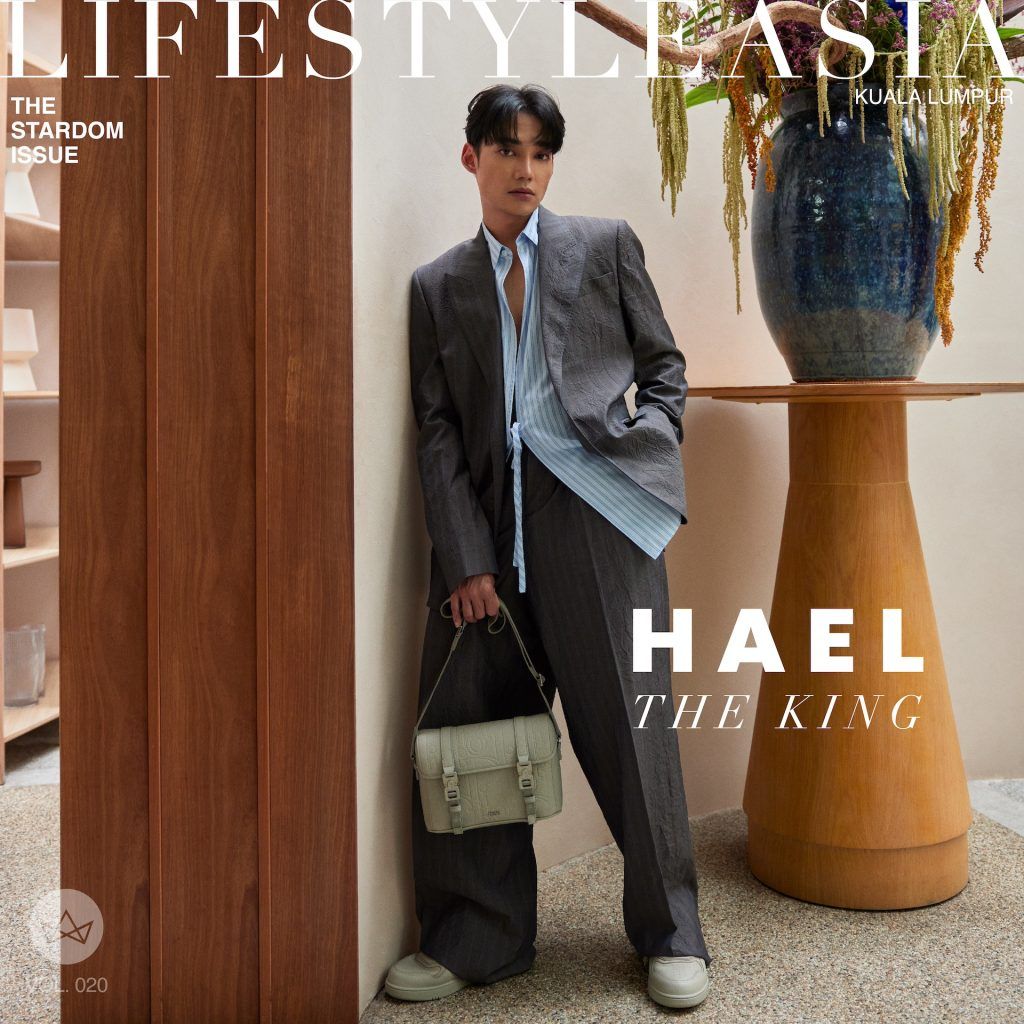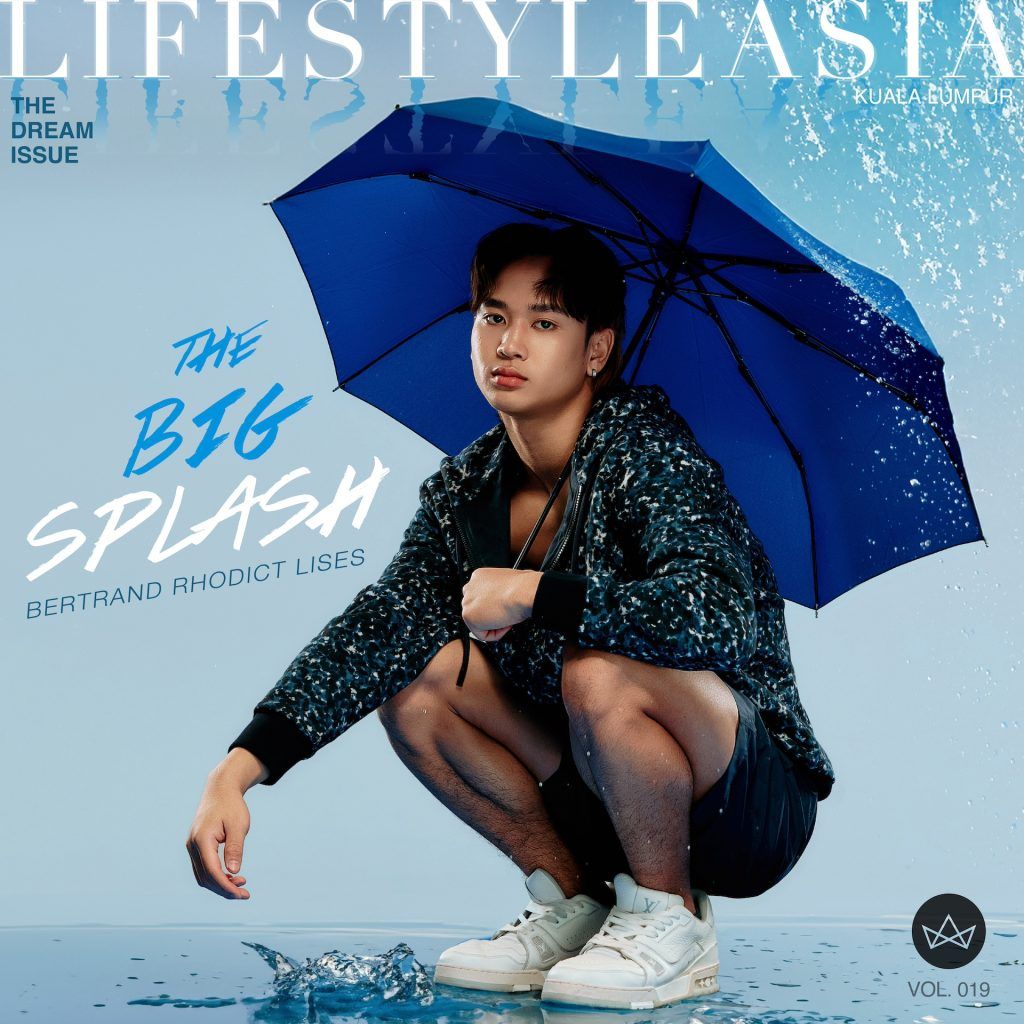Since making it to the top three in the Big Stage competition last year, singer-songwriter Aisha Retno has carefully navigated her musical career to make it ‘big’ indeed — from performing in the esteemed Petronas Philharmonic Hall and entering the semi-final for Muzik Muzik 38 (SFMM38) to releasing multiple singles and finally releasing her very first EP.
Aisha Retno is rocking to and fro with excitement. We’re cosy by the studio’s rear wall, watching as the crew sets up for our shoot — bunches of flowers, animated backdrop, vivid colours against a white wall; the works — and Aisha’s joy is contagious. She wears her pin-straight hair down (chopped into a bob in August, and kept neatly short since) and her heart on her sleeve.
“I’m just, like, really, super happy to be here,” she gushes, starry-eyed.
With how she carries herself on stage as the vocal powerhouse that she is, it’s often easy to forget how young Aisha is. Not to mention her overall bearing and demeanour. For lack of a better phrase, there’s a touch of the exotic in Aisha’s appearance. And the same can be said about her musical style, too.
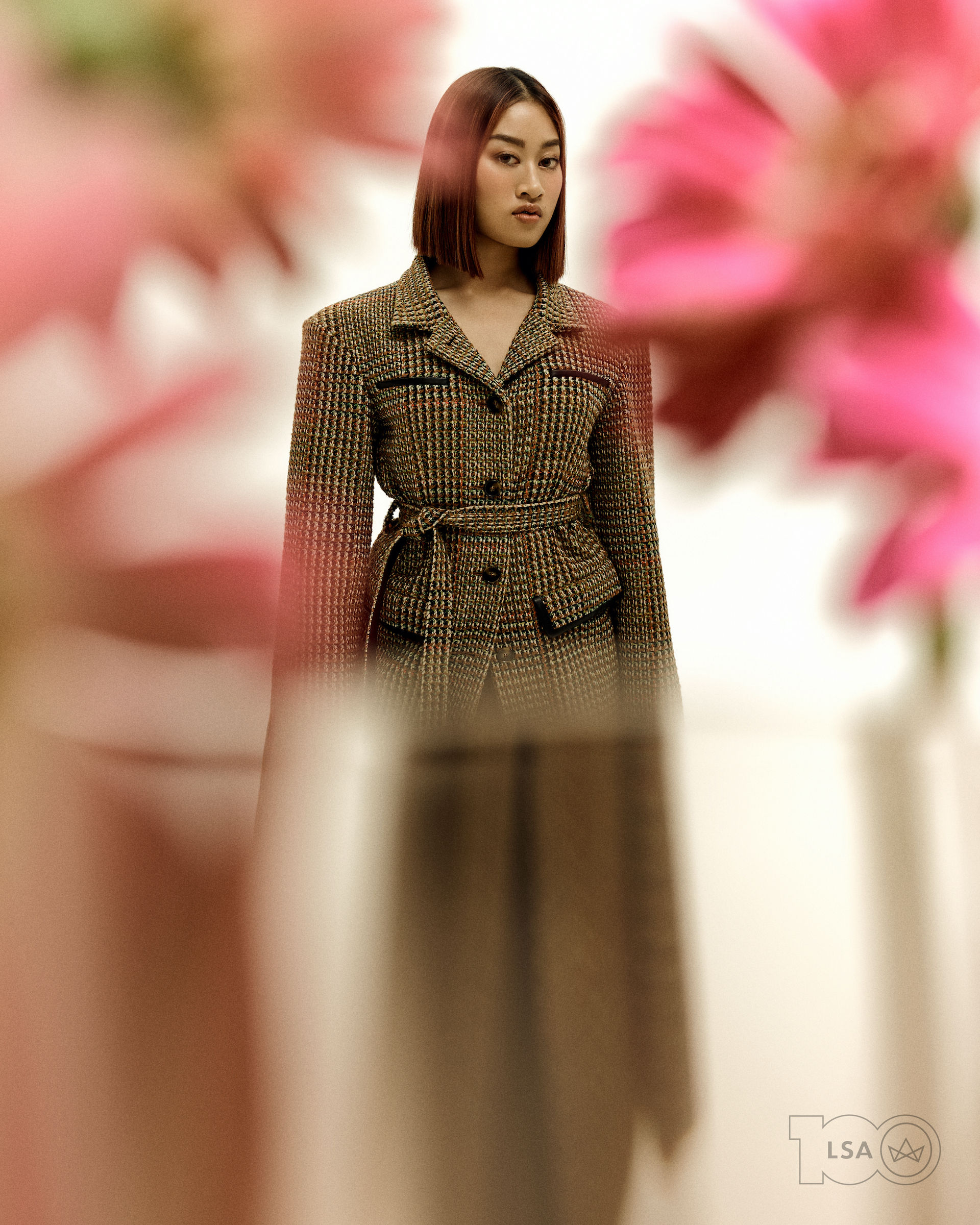
When the nation first took notice of Aisha Retno, it was the end of 2021 and she was only 21. Her single, “W.H.U.T (Wanna Hold U Tight)” had garnered 7 million streams on Spotify in under two months, and it was also a statement about the kind of singer she wanted to be. Reminiscent of the likes of Ariana Grande, “W.H.U.T” catapulted Aisha to the world of pop and R&B — but it was Big Stage that really showcased her diverse range of genres.
Aisha was born in Kuala Lumpur but she grew up in Indonesia, and while she didn’t initially pursue music as a child, she always found herself surrounded by it. Her mother is a Javanese keroncong singer who made it big in the 1980s, often grouped together with local legend Hetty Koes Endang. Their taste leaned toward the classic Nusantara style of keroncong or pop, which would certainly explain Aisha’s choice of genre today.
Big Stage gave Aisha the room not only to grow as a singer, but also to fully explore her musical style. Week after week, she performed a whole new genre — from ballads to R&B, and contemporary — and with each one, she improved on her own skills and learned something new about herself.
“At that time, I was still kind of confused as to what is actually the ‘Aisha Retno’ genre,” she admits. “It took me a while to decide. I’m proud of my own culture. I’m very proud to be half-Javanese, and I like bringing a little bit of Indonesian in me. At the same time, my dad is from Kelantan. I try to incorporate both cultures, so I feel like I can translate that into a song.”
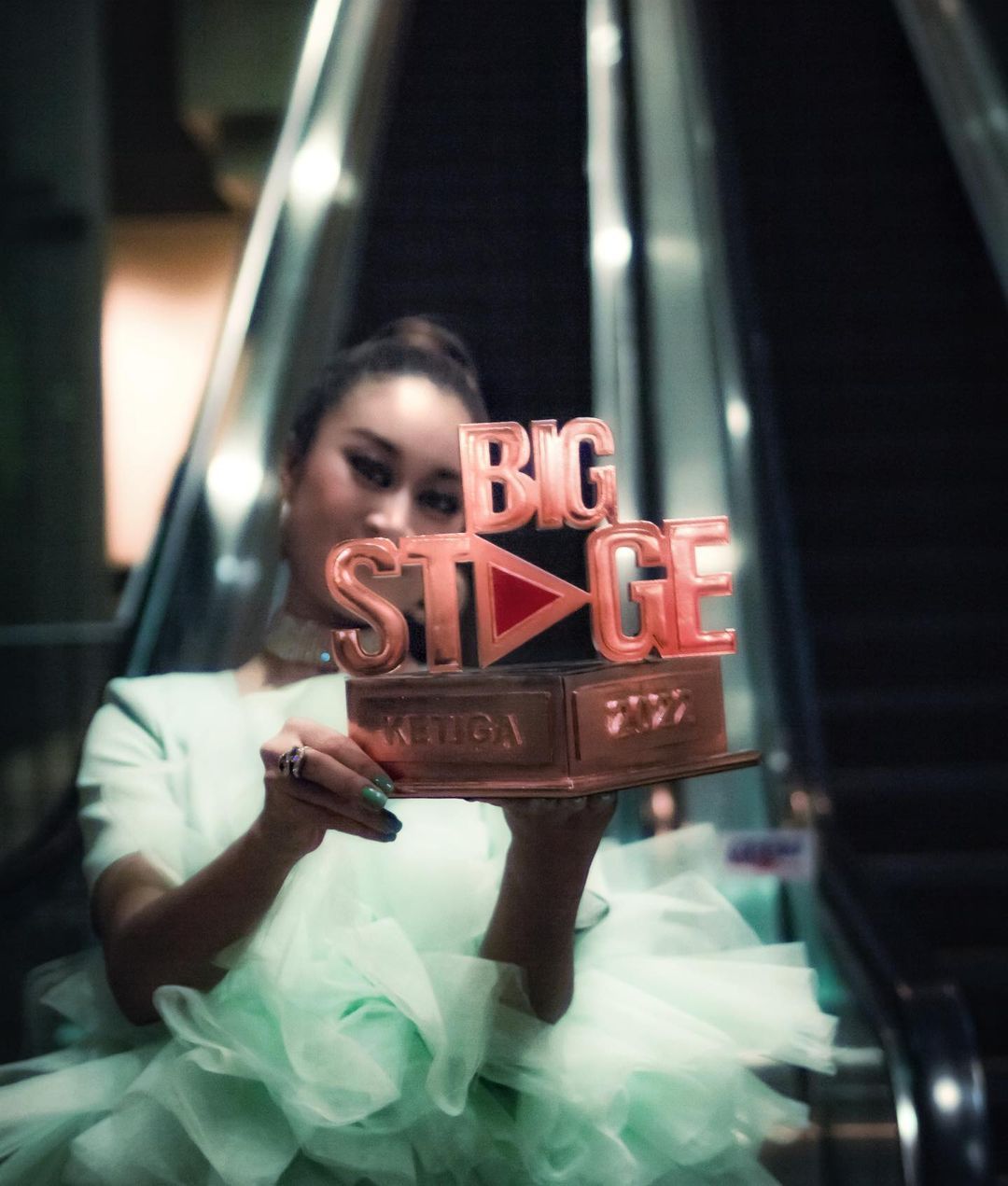
After Big Stage, Aisha released two more singles, “Pencarianku” and “Sutera” — both of which were later included in her first-ever EP, A.R. A glorious mishmash of the classic pop ballad, R&B and pop is what I gather from Aisha’s stylistic conventions, and also a bit of that exotic touch. Either way, it looks like it’s only onward and upward from here for Aisha Retno.
So, how did you get your big start? What first got you into the entertainment scene?
I grew up in Indonesia, but then eventually moved back to Malaysia for good. At that time, I didn’t think music was going to be my ‘passion’ in a way. I thought I would go into something educational — I wanted to be an accountant, so I learned all that stuff. Eventually, I got into several singing competitions, and then one of the teachers told me I should continue to be a singer. I was barely 13 years old at the time. Then fast forward, when I was 17 years old I got signed by Sony Music Malaysia, and that was my first ‘real’ step into the music industry. It was scary, but I was looking forward to all the challenges. I feel like the local music scene is just amazing and diverse.
2018 was the year when I first released my single debut called “Mengikat Jiwa” — my first ever self-written song. I wrote that song together with an Indonesian composer, who always writes songs for Chakra Khan and Afgan. I learned a lot from him, and we wrote our first single together. My first single didn’t make it there — and I totally understood, because it was still new to me and everything. So, I proceeded to join a singing competition called Vokal Mania, and eventually, I got first place. I released a song later — my first ever English song — “W.H.U.T”, which was also made in Indonesia. I think it was one of my proudest moments ever when I got to actually have an English single that made it out there in Indonesia. And I’m very excited for more, and also I’m looking into sustainability for me. Like, can I sustain anything? Because even though I’ve already made some appearances here and there, I’m the type of musician who’s curious and wants to learn a lot of things. I think it’s important that I don’t give up easily. I think it’s good for you to have that level of satisfaction, but at the same time, you need to keep doing something else that makes you relevant in the music industry.
And when did you first come back to Malaysia?
I was barely nine years old. I was born here, and then when I was two, my mum took me to Indonesia because she needed to continue her Masters in law. So, I was separated from my dad because he works here [in Malaysia]. I was far away from my dad as a child, so I barely knew him. And then when I was nine, my mum told me, “I think we should move back because you need to meet your dad.” Also because my mum already ‘finished everything’ there. She had to sacrifice her singing career there, and she also couldn’t complete her Masters because of the different syllabus. She felt that she needed to be a tough mum and take care of her child. And when I came back here, I thought, “Wow, Malaysia is really something else!”
Since you came from a family that has an entertainment background, your mom is a singer, and your brother is also a singer, so how does it impact you as someone in music?
I love that my family is not the type that puts too much pressure. I feel like music and pressure can be very contradictory, so you don’t have to put a lot of pressure when you pursue your passion. And I feel that the term ‘big shoes to fill’ doesn’t really fit me for now. But of course, the responsibility is there. The responsibility to sustain being a singer and a songwriter in the family and to just be active in the music industry is what matters to me most.
What would be the struggles and the biggest challenges that people don’t know about being an artist?
Oh my, it would be receiving hate. From all directions — you will not only receive it from the third party. Sometimes you will receive hateful comments from your own family and friends. Which can be good for you, to build up and motivate you. But sometimes when you’re still new, and you’re not feeling it, it can bring you down. So, I just transfer that into something motivational. But of course, as human beings, we do have times when we feel like, “Please don’t say that, please don’t criticise what I’m doing.” Receiving hate, I think, is one of the most vital things that people have to know that celebrities are facing.
And another struggle that singers or songwriters face is that they sometimes have to relate everything they do to what happened in their life. For example, your love life — when we are struggling with our love life, it will affect our job scope. Because when you write a song, you usually write something that’s relatable to your life. So, if you are breaking down or you’re not feeling it, you also translate whatever you’re thinking in your head onto the paper. I feel that as a singer-songwriter, it’s okay for you to be vulnerable with your feelings. That’s the beauty of being a singer-songwriter.
Just recently, you were performing something that has, like, an ethnic and contemporary theme. It’s kind of a beautiful mixture of music genres. Do you think it’s something that reflects who you are, in terms of your creativity and expression?
First of all, I thank to Big Stage. It gave me a lot of opportunities to perform a lot of different genres, because at that time, I was still kind of confused as to what is actually the ‘Aisha Retno’ genre. Because with ballads, I do like them — but sometimes I feel like I’m into R&B. And sometimes I’m into contemporary. So, it took me a while to decide. And I’m always proud of my own culture. I’m very proud to be half-Javanese, and I like bringing a little bit of Indonesian in me. At the same time, my dad is from Kelantan. I try to incorporate both cultures, so I feel like I can translate them into a song.
So, I got together with my composer and producer friends and when we sat down, they were like, “Aisha, try this contemporary ethnic Nusantara genre, I think it will suit you.” Then I tried releasing it through my latest song called “Sutera”, and it translated whatever my composer and producer friends told me. They said, “I think we should really merge and incorporate that EDM vibe with the Nusantara vibe.” And I think it works in a way. But of course, some of my fans were confused at first because that genre is something I rarely sing and perform. Eventually, they got used to it I feel, because I’m trying to incorporate whatever that I’m doing in a song with my love of fashion, too.
What is the thing that you love about expressing yourself through music?
I think the lyrics, or whatever that I’m doing with the music, matter the most. The emotions as well — how you actually want to get the audience to understand your inner self in whatever you’re writing. Because to me, lyrics can be fictional or nonfictional, it’s up to you. But I really like to tell a story of what I have experienced through music. The song that I’ve released, for example, “Sutera” — tells a story of how we as women are struggling in the music scene, like, we don’t get the shots that we deserve. I feel like that’s something that can be very empowering. All I know is that I feel like music is actually therapy.
What are the other ways for you to express yourself besides music?
I feel like fashion or photography is something that I do to express myself. I’m the type who likes to take pictures, like, random pictures. I like to just stare at the pictures that I took, it’s a form of expression that I feel is ‘hidden’. At the same time, I can reminisce about it, because it’s a memory, right? You can just relive it over and over again. Also, I feel that taking pictures, is like a next level of sentimentalism because it is something that you can’t explain to others. Only you can understand it.
Are you looking to venture out to new territories? And what would it be?
Yeah! Why not? I think maybe in business because I’ve got a degree in economics. So, I don’t want that to go to waste. I feel like ‘business’ can be a way of incorporating both music and whatever that I have learned. Business, as in, in terms of maybe opening a vet. Because I have 20 cats at home — all adopted. Cats for me are like another level of therapy. [Laughs] Sometimes I just sit in front of my cat and tell them stories, I know they don’t understand a thing. I don’t know if it is just a form of me expressing myself.
Why do you think it’s important for artists to diversify?
Because trends change from time to time. We are now living in a world where we always have to follow a trend. If you are creative enough to explore more, I think it’s good — because before this, most artists solely just knew how to sing. But I think we Gen Z artists have to have a wide vision and creativity. Yeah, I think it’s super important to diversify because we’re living in a very competitive world and it changes super fast. We need to be creative and create trends. If you want to be relevant and you want to sustain that, you just have to do it.
So, what is your future plan?
I’m gonna get married. Ha ha! I’m kidding. Right now I’m 23, so what’s next is the business, I guess. Looking at other celebrities, I don’t think music alone can be enough. Like I said before, to be able to sustain, we need to expand our territory. For example, take a look at Aina Abdul. She’s my idol by the way. She’s been working hard, and I really look forward to whatever she comes up with next. She started from zero, and built her own empire, and now she’s independent. And as for my version of longevity, I feel like as long as you diversify what you wanna do and find other territories, it’s gonna be sufficient.
As a young artist, what would be the best advice for new and upcoming talents?
Be you, and be creative. You just have to be transparent, but not too transparent — I mean, show your good true colours. Just don’t try to be someone that you’re not. People will adore you, idolise you and love your music because you are being you. And you have to be creative and also relevant. To be a singer is not an easy job, it’s more than just ‘grab a mic and sing out there’. You have to go from zero to hero. And you have to be very particular in what you are doing. If you have an opinion, people will come to respect you more. And at the same time, you need to accept other people’s opinions. That can lead you to be a successful and more mature singer-songwriter.
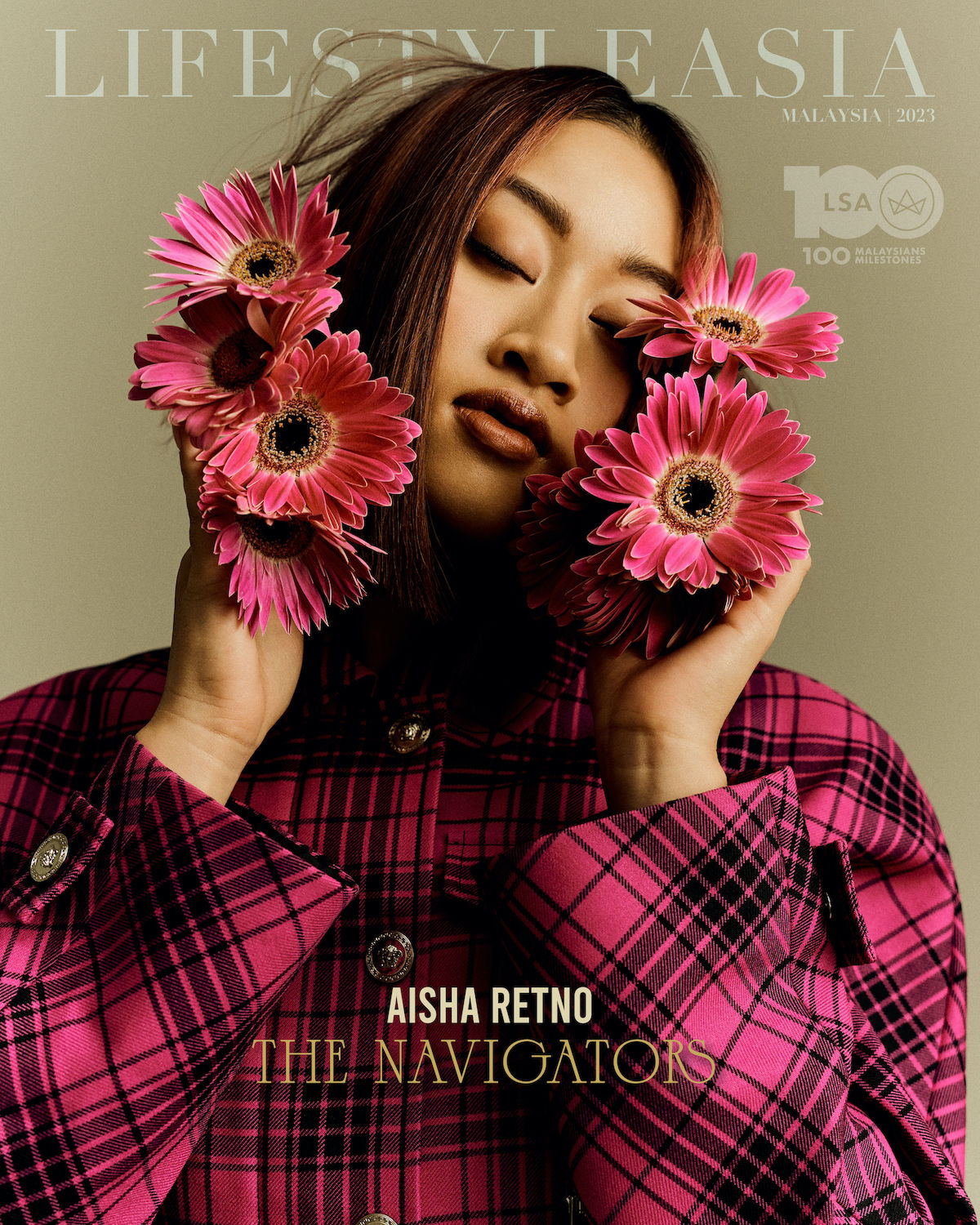
LSA100: 100 Malaysians, 100 Milestones
Lifestyle Asia KL presents LSA100, an annual list that recognises Malaysia’s most influential names and celebrates their talents, contributions, successes and milestones. As the bellwethers of style, travel, design, entertainment, business, sports, and more, these 100 Malaysians represent the next generation of go-getters who are paving the way for sharing their know-hows with the world through the power of digital media. LSA100 comprises five categories namely The Rising Aces, The Trailblazers, The Disruptors, The Navigators and The Tastemakers. Find out more about LSA100 Class of 2023 HERE.

